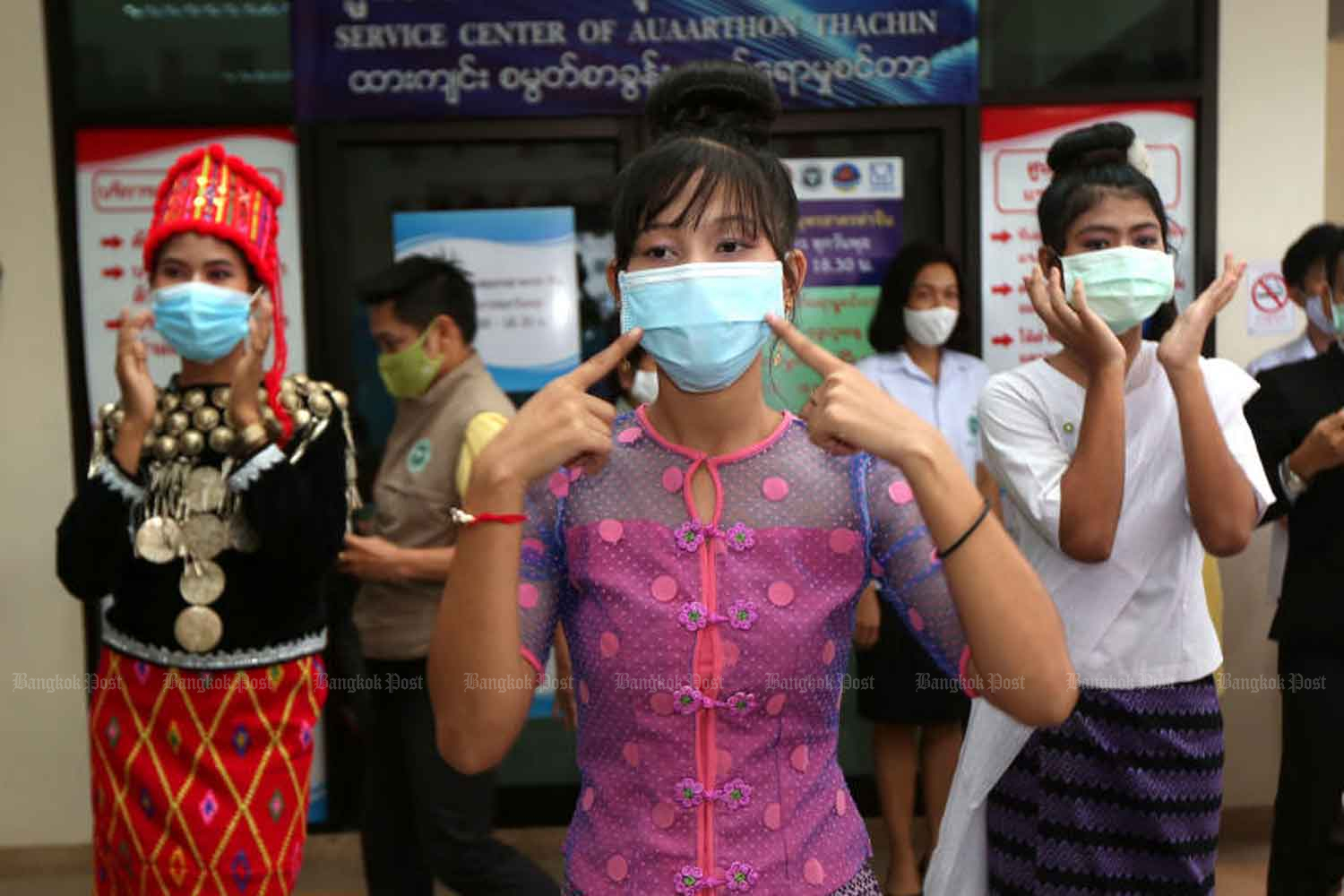
The Centre for Covid-19 Situation Administration (CCSA) has decided to extend the enforcement of the executive decree, the state's most powerful weapon against Covid-19, for another month but will allow some businesses, including shopping malls and hair salons, to reopen to ease the impact of business shutdowns.
Some drastic measures implemented under the decree, including the six-hour curfew from 10pm to 4am and strict travel restrictions, will remain as CCSA chief and Prime Minister Prayut Chan-o-cha adopted what he called a "public health-led economy" by giving more weight to health safety rather than the pulse of businesses, CCSA spokesman Taweesilp Visanuyothin said after the CCSA meeting on Monday.
The premier stressed a need for precautions, but the CCSA resolution sparked some concerns among health experts, including Prasit Watanapa, dean of Siriraj Hospital's faculty of medicine, who warned the gradual lifting of the country's lockdown will cause the daily number of new Covid-19 patients to increase, albeit at a slower rate than that in the pre-executive decree period in early March.
The draconian law, which was enforced later in the same month, followed a sharp increase in new infections. The measures served to flatten the coronavirus curve, reducing the rate of new daily infections. The number of new cases dropped to nine on Monday -- the first single-digit number in more than a month.
The executive decree enforcement is set to end this Thursday, but four measures under the law will continue unabated, Dr Taweesilp said. They are the curfew from 10pm to 4am, the prohibition on mass gatherings, restrictions on inter-provincial travel and strict controls on travel into Thailand, including a ban on all incoming flights for another month.
But Gen Prayut agreed with the Office of the National Economic and Social Development Council that some businesses should be allowed to reopen under certain conditions.
"The prime minister agrees in principle but has not looked into the details," Dr Taweesilp said.
Businesses and places that will reopen from May 4 must be necessary to people's daily lives and have a low risk of disease transmission, he said. Others like boxing stadiums, entertainment venues and activities involving large crowds gathered in small spaces are deemed to be high risk.
Officials on Monday spent the whole afternoon drafting to-do lists for businessmen and place care-takers if they are given permission to reopen, according to a source close to the CCSA meeting. All the proposals, which are aimed at maintaining hygiene standards, will be forwarded to the cabinet for a final say today.
Their performance will be assessed every 14 days and "if an outbreak erupts, the business will be shut down immediately", Dr Taweesilp said.
Gen Prayut also agreed with the idea of allowing selected businesses to reopen countrywide because this will limit the number of people travelling to areas where business activities are granted the green light.
A careful approach to lifting the lockdown is needed, Dr Taweesilp stressed, citing a warning by Sukhum Karnchanapimai, permanent secretary of public health, who painted starkly different pandemic scenarios based on varying public health policies.
If the government allows low-risk activities to commence, new infections will increase to between 40-70 a day, against a range of 15 to 30 under the current regime, said Dr Taweesilp.
Dr Prasit likewise said the country may see a surge in new Covid-19 cases following the easing of some lockdown measures. He said the disease control approach which has been adopted -- "The Hammer and the Dance" -- where the hammer involves strong measures to flatten the curve, while the dance employs more relaxed measures to keep the virus contained.
Such strong measures include stay-at-home orders, closures of businesses and social distancing, he said. But Dr Prasit said the strong measures will not be implemented for an extended period because they will put the economy in a deep freeze. Once the curve is flattened, restrictions will be eased.
"When the measures are eased, the number of new cases may rise, but the increase is unlikely to be sharp. And it is possible that at some point the government may opt for strong measures to flatten the curve. It may go on like this and everyone needs to help," he said.
Dr Prasit said the rate of new infections would determine how fast the country switches back to lockdown mode.